(NOT SO) FREQUENTLY ASKED QUESTIONS
Have questions about fertility preservation? We’ve gathered clear, science-backed answers to help guide you. If you don’t see what you’re looking for, we’re here to help!
What is egg freezing?
Egg freezing, or oocyte cryopreservation, is a process that lets you pause your biological clock. Your eggs are collected, frozen using cutting-edge technology, and stored for when you’re ready to use them. It’s a way to preserve your fertility and keep your options open for the future.
Source: The ESHRE Guideline Group on Female Fertility Preservation, Human Reproduction Open, 2020 .
Who should consider egg freezing?
Egg freezing might be for you if:
- You’re undergoing gender-affirming hormone therapy or planning surgery that affects your ovaries.
- You’re not ready to have kids right now but want to keep the option open.
- You’re about to start medical treatments (like chemo) that could affect your fertility.
- You’re dealing with health conditions that might impact your ability to have children.
Source: Mahesan et al., Fertility Research and Practice, 2019 .
How does egg freezing work?
It’s a three-step process that takes about two weeks:
- Boost: Hormones are used to encourage your ovaries to produce more eggs.
- Retrieve: A quick, minor procedure collects the eggs.
- Freeze: The eggs are frozen and stored safely for as long as you need.
At ooVoo.Life, we’re here to guide you through every step and connect you with top-notch clinics.
Source: Chronopoulou et al., Journal of Assisted Reproduction and Genetics, 2021 .
How long can eggs stay frozen?
Your eggs can stay frozen for years—over a decade, in fact! Studies show they remain viable for a long time if stored correctly. Just keep in mind that some countries have regulations about storage limits.
Source: Smeenk et al., Human Reproduction Open, 2017 .
What are the chances of success with frozen eggs?
It depends on your age and egg quality at the time of freezing. If you’re under 38, you could collect 10–20 eggs per cycle, and younger eggs generally have higher success rates. The earlier, the better!
Source: Wennberg et al., Upsala Journal of Medical Sciences, 2020 .
Is egg freezing safe?
Absolutely! Egg freezing is considered safe, but like any medical procedure, there are risks. The most common ones are:
- Ovarian Hyperstimulation Syndrome (OHSS) from the hormone medication.
- Rare complications from the egg retrieval procedure.
At ooVoo.Life, we’ll connect you with expert clinics and provide all the support you need.
Source: The American College of Obstetricians and Gynecologists (ACOG), 2016 .
How much does egg freezing cost?
At ooVoo.Life, we partner with clinics to offer flexible pricing options. Plus, our team helps you navigate the process so you can focus on your future without financial surprises.
When’s the best time to freeze my eggs?
Your mid-20s to early 30s is the sweet spot, when your eggs are plentiful and healthy. While you can freeze eggs later, success rates decline as fertility naturally decreases with age.
Source: Delbaere et al., Upsala Journal of Medical Sciences, 2020 .
Can I use my eggs anywhere in the world?
Yes! Your eggs can be safely transported to wherever you need them. ooVoo.Life ensures this process follows the highest safety and quality standards.
Source: Shenfield et al., Human Reproduction Open, 2017 .
What happens when I decide to use my eggs?
When the time is right, your eggs are thawed, fertilized with sperm, and the resulting embryos can be transferred to your uterus—or saved for future use.
Source: The ESHRE Guideline Group on Female Fertility Preservation, 2020 .
How does ooVoo.Life help?
We’re not a clinic—we’re your partner! We connect you to the best clinics and make the whole process simple and stress-free by:
- Guiding you with clear information and resources.
- Offering emotional support to ease any worries.
- Helping you navigate pricing and logistics.
Think of us as your go-to fertility concierge.
